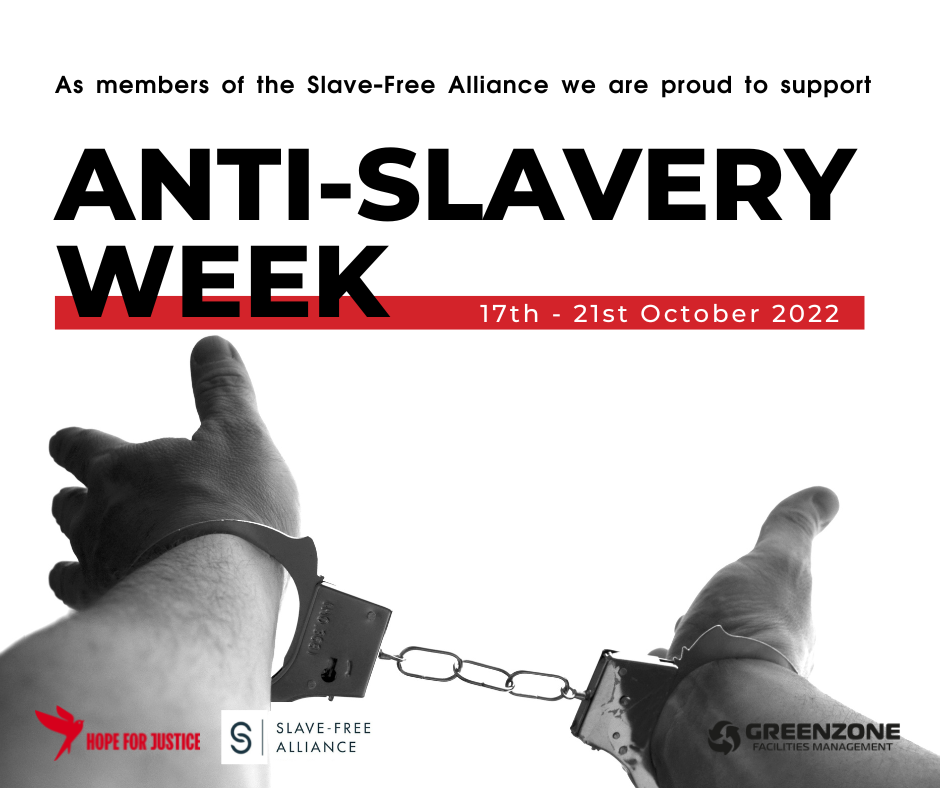The start of our journey
We joined the Slave Free Alliance in September 2021 to demonstrate our commitment to ending Modern Slavery and obtain guidance on how we could improve our practices and eliminate slavery in our supply chain.
As a waste broker, we arrange waste and resource management services for our clients. We don’t have our own waste facilities or a fleet, instead, we buy and sell our services and all our employees are office based or work remotely.
The services we can provide, and our geographic reach is only limited by our supply chain. We currently have around 250 active suppliers and 64% of these are SMEs, many of whom are regional, local and niche suppliers.
Although Greenzone is not in scope of the Modern Slavery Act 2015, we are alive to that fact that the waste sector is an area of risk, and it is highly competitive with pressure on prices.
The industry employs workers who are vulnerable and lower skilled and who are at greater risk of human trafficking. This is not only a problem from a criminal liability perspective but can also result in compensation claims and damage to reputation.
Reputation is important and when we started on our journey to demonstrating commitment to anti-slavery, we acknowledged that it would have sales and marketing benefits. However, for us, the conversation went further and stimulated the debate about the risks to us, in terms of HR and supply chain.
We have large customers, and we are courting large customers who will be in scope of the Modern Slavery Act. Given the increasing regulatory focus on transparency in supply chains and the importance of ESG issues for investors and customers it is strategically and morally important for us to act proactively in this space.
What we Learned from Joining the Slave Free Alliance
When we became members in 2021, we became part of the Waste and Resource Working Group of the SFA. We meet as a group on Teams and face to face to discuss the issues affecting our industry. Within this group, we’ve learned what larger companies are doing and it’s encouraging to see that level of commitment.
As a business, we are remote from the risk and not in control of our supply chain. Our challenge is ensuring our supply chain have procedures in place when they are not obliged to produce a slavery and human trafficking statement. Some may not be fully aware of the criminal offences created by the Modern Slavery Act 2015. We appreciate the daily challenges that our suppliers face, such as driver shortages and rising operating costs, which puts them under immense pressure, and maintaining profitability becomes a daily priority.
With the support of the SFA, we are identifying areas for improvement (including new supplier onboarding) and this responsibility will be picked up by our new Head of Supply Chain in the coming weeks.
What’s Next?
The conversation for us now, is how we can help or direct our supply chain, and how we can communicate the importance of anti-slavery in a collaborative way, that isn’t onerous or draconian and makes it accessible to them.
With the help of the SFA, and taking learnings from shared experiences and the decisions of the Waste and Recycling group, we hope to:
- Voluntarily prepare a slavery and human trafficking statement
- Prepare and issue a supplier charter
- Continue to communicate the importance of anti-slavery to our employees as part of our mission to make our communities better
- Improve our RFI and supplier onboarding and supplier monitoring criteria in such a way to secure engagement
- Amend supplier contracts to include an obligation to comply with the Modern Slavery Act 2015 and our Supplier Charter.
As a small company, we are very much at the start of a journey with this, but we are determined as this is part of our ESG Strategy and our mission to make our communities better.


